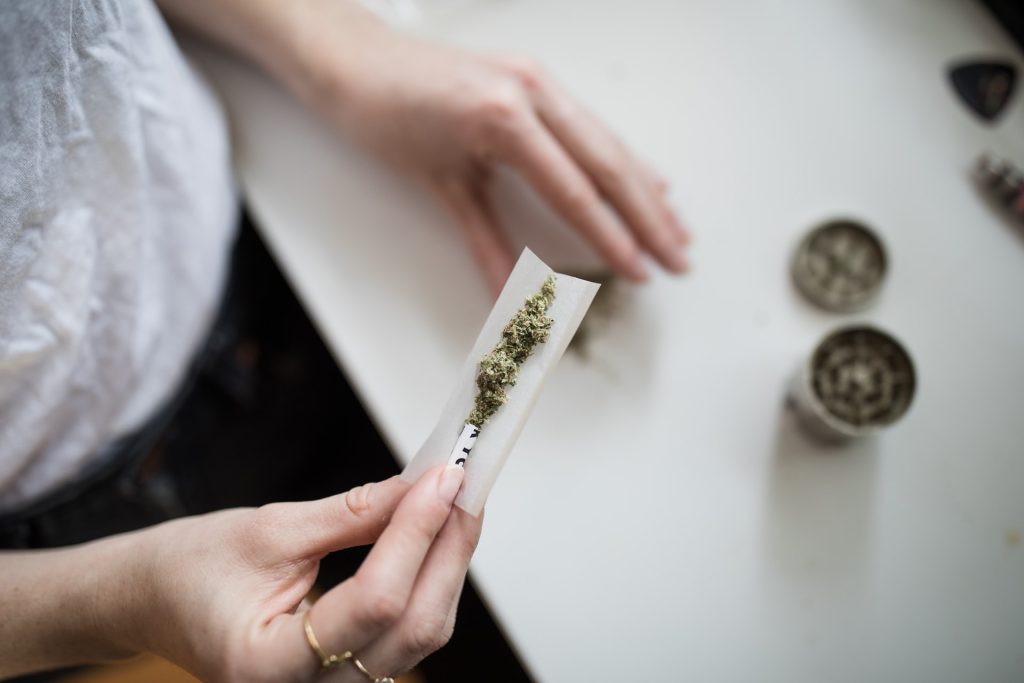
Scientists have found that significant amounts of THC and CBD, the two main components of cannabis enter the embryonic brain of mice in utero and impair the mice’s ability as adults to respond to fluoxetine (Prozac).
The study suggests that when the developing brain is exposed to THC or CBD, normal interactions between endocannabinoid and serotonin signaling may be diminished as exposed individuals become adults.
“Hemp-derived CBD is a legal substance in the US, and we are in a time of increasing state-level legalisation of cannabis. Therefore, use of cannabis components have increased across most levels of society, including among pregnant women. The study marks the beginning of an effort to understand the effects of THC and CBD on the endogenous cannabinoid system (ECS) in the developing brain and body,” explained Hui-Chen Lu, director of the Linda and Jack Gill Center and professor in the Department of Psychological and Brain Sciences in the IU Bloomington College of Arts and Sciences.
Researchers studied four groups of pregnant mice. Some received daily moderate doses of either THC, CBD, or a combination of equal parts THC and CBD; a control group had placebo injections throughout pregnancy. Using mass spectrometry, IU psychological and brain sciences professor Heather Bradshaw tested embryos and found that CBD and THC both could cross the placenta and reach the embryonic brain.
“The surprising part is that maternal exposure to CBD alone — a drug that is often considered as safe and harmless and is a popular ‘natural’ therapy for morning sickness — resulted in a lasting impact on adult mice offspring,” Lu said. “Both prenatal THC and CBD exposure impaired the adult’s ability to respond to fluoxetine. The results suggest taking a cautious approach to using CBD during pregnancy.”
There is however some evidence for CBD’s effectiveness in treating chronic pain and anxiety, though currently the only FDA-approved indication for CBD is the treatment of severe seizure disorders.
“We still know very little about the effects of CBD on the developing brain,” Prof Lu said.
The new paper is one of the first studies to see the potential negative impact of CBD on the developing brain and later behaviours. However observational studies in the 1980s saw increased anxiety and depression in offspring of mothers who used the lower-strength cannabis available at the time. Since women may take cannabis products for nausea and vomiting, this has relevance for public health awareness.
Study co-author Ken Mackie, Gill Chair of Neuroscience at IU Bloomington, said researchers know that prenatal cannabis exposure may increase the risk for anxiety and depression, so it is important to evaluate the response to a class of drug used to treat anxiety and depression.
Though normal mouse behaviours were seen in many tests, one test — to determine their response to stress — had a strongly atypical result. In all groups, the mice responded normally to a stressful situation. As expected, fluoxetine increased stress resilience in mice whose mothers had received the placebo. However, the drug was ineffective in mice whose mothers had received THC, CBD or their combination.
Fluoxetine works by increasing the amount of serotonin available at brain synapses, an effect known to require the endocannabinoid system. This internal system of receptors, enzymes and molecules both mediates the effects of cannabis and plays a role in regulating various bodily systems, such as appetite, mood, stress and chronic pain.
To test if maternal exposure to THC and/or CBD impaired endocannabinoid signaling in the adult offspring, the researchers tested whether boosting the ECS with a drug would restore fluoxetine’s effectiveness. They found that the ECS boosting restored normal fluoxetine responses in mice that had received THC or CBD while their brains were developing.
Source: Indiana University
Journal reference: de Sousa Maciel, I., et al. (2021) Perinatal CBD or THC Exposure Results in Lasting Resistance to Fluoxetine in the Forced Swim Test: Reversal by Fatty Acid Amide Hydrolase Inhibition. Cannabis and Cannabinoid Research. doi.org/10.1089/can.2021.0015.

